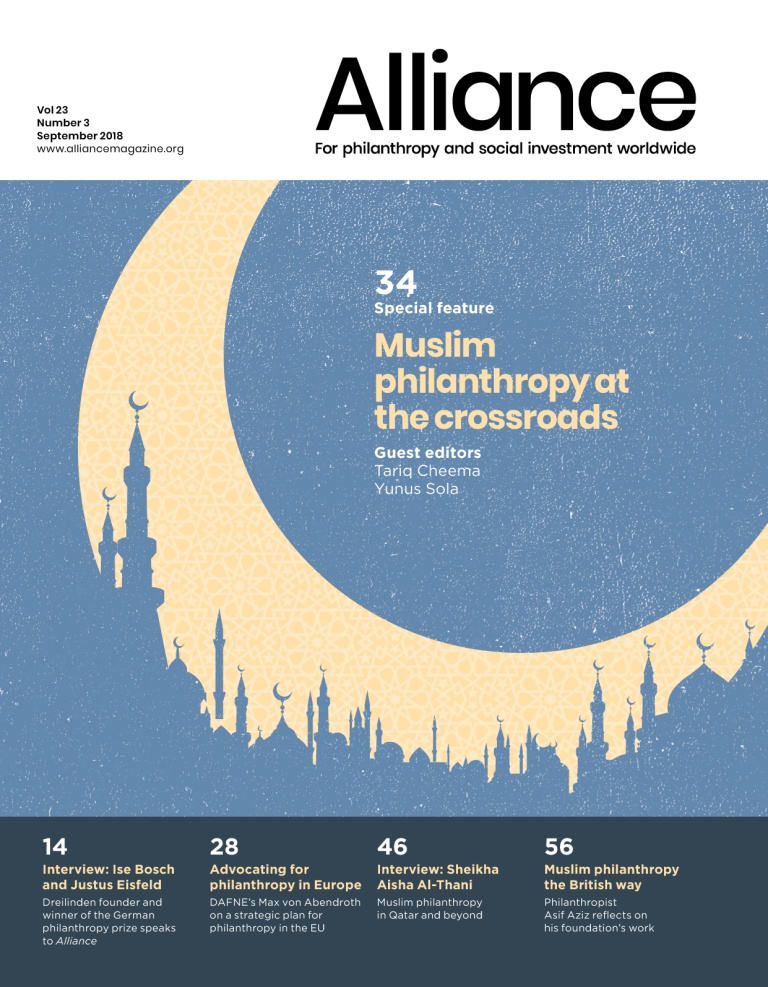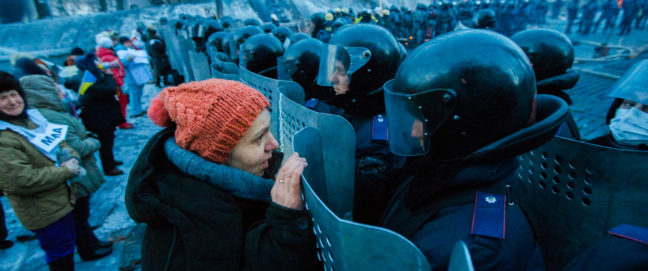An emboldened coalition can make the case to EU institutions of the importance of philanthropy to Europe’s future
The activity and effectiveness of European philanthropy over the past years has been significantly shaped and partly narrowed by new data-protection and privacy rules, by the introduction of foreign funding restrictions in some EU member states and by continuing barriers to cross-border philanthropy. At the same time, at EU level, there are great opportunities to work more closely and strategically with EU institutions when it comes to co-funding and co-granting. Furthermore, 70 per cent of relevant national legislation for philanthropy originates in EU institutions. For all these reasons, Brussels has become a key place for Europe’s philanthropy sector, engaging with EU institutions and improving the operating environment for philanthropy.
Europe is about creating a single market and harmonizing rules but, in this debate, philanthropy is not yet on the map.
I joined the Donors and Foundations Networks in Europe (DAFNE), in October 2017 as its executive director after 12 years coordinating the European advocacy work of Europe’s press publishing houses. Like foundations, press publishers value their independence: political influence on journalistic content is fiercely resisted, as it should also be on the programmes and projects philanthropy supports. The press sector regards it as crucial to engage with EU institutions at all levels to shape the regulatory and non-regulatory environment for a free, independent and vibrant press. So should philanthropy: promoting the need for an independent and vibrant philanthropy sector in Europe in order to create even more and better public value is in the best interests of Europe’s society.
Philanthropy advocacy – the importance of alliance
Engaging in advocacy at a European level is complex: there is great diversity of cultures, mentalities, languages and political traditions across the 28 member states and their neighbouring countries. Additionally, EU legislative procedures involve European commissioners from all member states, 751 members of the European Parliament and 28 national governments.
My experience of advocacy with the EU has taught me that the only way to succeed in this environment is through a well-coordinated and proactive alliance. This requires colleagues at national and European level to reach out in a consistent manner to citizens and politicians in member states and to EU institutions, and be able to align their advocacy objectives and join forces for the common goals.
In Brussels’ Philanthropy House, such a formal alliance was created this spring and is gaining ground. DAFNE, with its 26 national association members, being close to their national governments, together with the European Foundation Centre (EFC), set up a joint advocacy project titled ‘Philanthropy Advocacy’. Building on the advocacy work that the two organizations have carried out over the last decades, this joint project aims to shape, among other things, fiscal policy, anti-money laundering legislation, freedom principles and co-granting and co-investment programmes in the best interests of Europe’s donors and foundations. Philanthropy Advocacy is monitoring legal developments, providing legal analysis and proactively engaging with national and European politicians around relevant legislation for philanthropy.
Single market for philanthropy – a positive framing
‘Goods and services travel freely across Europe yet philanthropic support cannot,’ DAFNE chair Felix Oldenburg points out. Europe is about creating a single market and harmonizing rules but, in this debate, philanthropy is not yet on the map.
A ‘door-opener’ is needed – and here it is: European foundations have a long tradition of working with the European Commission on co-funding in science and research, in international development, in social affairs and employment – to name just a few areas. It would therefore be politically astute to bring the philanthropy sector into the new Multiannual Financial Framework, applicable from 2021, as a strategic partner. This is what the European Commission did in its proposal for the InvestEU programme from 6 June 2018.
The Commission has a keen appetite to work closer with foundations across Europe as it acknowledges the outstanding contribution and unique expertise of Europe’s philanthropy sector in the social field.
The Commission has a keen appetite to work closer with foundations across Europe as it acknowledges the outstanding contribution and unique expertise of Europe’s philanthropy sector in the social field. In return, this opens new opportunities for foundations to move towards mission-related investments from their endowments, as the InvestEU programme provides a guarantee instrument to cover up to 80 per cent of the risks of such investments. The EFC and DAFNE Philanthropy Advocacy project, in alliance with the European Venture Philanthropy Association, is working through advocacy to shape this programme in the interests of Europe’s philanthropy sector.
This advocacy project provides a specific opportunity to liaise with those politicians who are not aware of the negative effects on philanthropy of regulatory initiatives they are responsible for – such as fiscal policy, anti-money laundering legislation and threatened freedom principles.
2019 European elections – risk and opportunity
Between 23 and 26 May 2019, European citizens will elect a new European Parliament with 751 parliamentarians who will then appoint the new European Commission president and its commissioners in autumn 2019. This is an opportunity for European philanthropy to introduce some of our key ‘asks’ to the policy agenda for the next five years.
But there is also a more fundamental civic leadership role to play for philanthropy between now and May 2019. With populism on the rise across Europe, putting at risk European values such as respect for human dignity and human rights, freedom, democracy, equality and the rule of law, there is a role for the European philanthropy sector to mobilize European citizens to use the 2019 elections as an occasion to strengthen rather than weaken democracy and its institutions.
We see all these things as essential for European philanthropy to thrive. The success of our call for a single market for philanthropy, as well as leveraging the full potential of the co-investment and co-granting opportunities with the EU, depend significantly on a pro-democratic political climate.
Max von Abendroth is executive director of DAFNE.
Email max.abendroth@dafne-online.eu
Twitter @bxlmax/@dafneHQ





Comments (0)